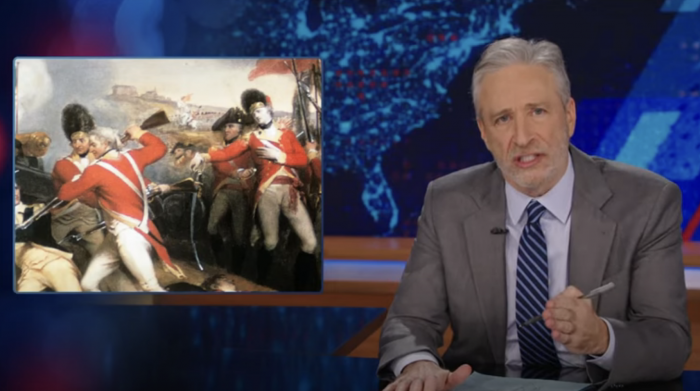

Bang Bang Club Review: An Egregious Disaster of Boneheaded Proportions
By Dustin Rowles | Film | April 28, 2011 |
By Dustin Rowles | Film | April 28, 2011 |
There’s a truly amazing, insightful, and thoughtful story surrounding the lives of the Bang Bang Club — four photographers working in South Africa during the Apartheid period between 1990 and 1994 — one that is anguishing, fascinating, and ultimately, a real goddamn bummer. It’s a story that soars with thematic conflict, about the violence between the Nelson Mandela’s African National Congress and President F.W. de Klerk’s supporters, the struggles between documenting and exploitation, and between art and atrocity. Unfortunately, that story is nowhere to be found in Steven Silver’s crushingly awful Bang Bang Club, an inert, atrociously acted, pitifully directed film based on Greg Marinovich and João Silva’s book, The Bang-Bang Club: Snapshots from a Hidden War.
Bang Bang Club is the worst kind of film, one that takes all the drama out of a naturally gripping story, reducing it to a disorganized mess of lifeless snapshots weaved together with cringe-worthy South African accents and stoic-bordering-on career-destroying performances from Ryan Phillipe, Taylor Kitsch, and Malin Ackerman. It’s good that Bang Bang Club exists, if only to bring attention to the four figures at the center of the film — two of whom won Pulitzer Prizes for their work — but the lack of care taken with their accounts and experiences in South Africa, the impotent filmmaking, and unforgivable laziness is close to criminal, a grave-shitting disservice to two of the BAng Bang photographers, one of whom was killed doing his job and another who took his own life because of his job. There’s surely so much more to the lives of these photographers than the flat, one-dimensional characters presented in the film, and it’s a shame that, for some, their legacy will be reduced to this cinematic rubble.
The Bang Bang Club covers the final months of Apartheid, as President F.W. de Klerk and his supporters instigated violent unrest in an attempt to prevent free elections. As the civil war was being fought, people were murdered and burned on the streets, and the photographers in the Bang Bang Club were there to document it. Ostensibly, they took no side in the conflict; they simply put themselves in the midst of the danger, the bullets, and the bloodshed, and captured the images of violence for the rest of the world to see.
Surely, the four photographers — Kevin Carter (Kitsch), Greg Marinovich (Phillipe), Ken Oosterbroek (Frank Rautenbach), and João Silva (Neels Van Jaarsveld) — had distinct personalities, but in the Bang Bang Club they are broadly depicted as the stoic one with long hair and a drug problem, the stoic one sleeping with his editor (Malin Ackerman), the stoic one with the blond girlfriend, and the stoic one with the anger issues. They walk among the violence and stop to take photos, rarely expressing any emotion at the sight of a man being brutally stabbed and burned to death or even anything much beyond casual indifference to South Africans taking swipes at the them with machetes or the bullets whizzing by their ears.
Worse than the characters is the choppy storytelling and the lack of transitional scenes: In one moment, for instance, Marinovich is taking a photograph, and in the next, he’s getting a call announcing his Pulitzer. Likewise, in one moment, Kevin Carter is a happy-go-lucky photographer, and in the next he’s a depressive drug addict. It’s as though Silver, who also served as screenwriter, adapted certain pages of the source material instead of the book as a whole, separating the big events with mood-setting musical montages. Arcs are started but never finished; characters introduced but never disposed of. I’m not sure, either, if the romance between Marinovich and his editor was real, but if feels tacked on and clumsy, providing only opportunities for Ackerman and Phillipe to duel in a bad South African accent contest (they needn’t bother; Kitsch had won the title before the first scene had ended).
Bang Bang Club (available for rent on iTunes, though why anyone would bother is beyond me) should’ve been a a vibrant film splattered in blood and conscious wrestling that humanized the men behind the photographs. Instead, it reduces them to stock characters with cameras, placeholders tediously walking through scenes, occasionally stopping to snap a picture or push back their hair. It could’ve been more; it should’ve been more. But as it is, Bang Bang Club is an unsalvageable mess, an embarrassment not only to film but to the lives of those people documented.
← The Quarantine Has Been Compromised. The Disease is No Longer Contained: Presenting Jersey Shore's UK Counterpart | Set Image from 21 Jump St. Suggests Jonah Hill Is Halfway Between Superbad and Richard Greico on the Weight Loss Scale →

Jon Stewart Forcefully Makes the Case Against the Former President's Patriotism
Is The Royal Family Trying to Make It Look Like Kate Middleton’s Dead?
What’s Old Is New Again: Old Hollywood Glamour Glitters at the 2024 Oscars
Al Pacino Presents Best Picture Oscar, Confuses Everyone
The Dangerous Lie Of 'TradWives'
A Legendary Horror Franchise Is Headed To Television
More Like This
Al Pacino Presents Best Picture Oscar, Confuses Everyone
Kyle Mooney's Horror-Comedy 'Y2K' Goes Too Hard on Kyle Mooney's Sense of Humor
'Imaginary' Almost Sucks
Box Office Report: Kung Fu Sandworms
The 2024 Oscars Were Great Right Up Until the End
Reviews